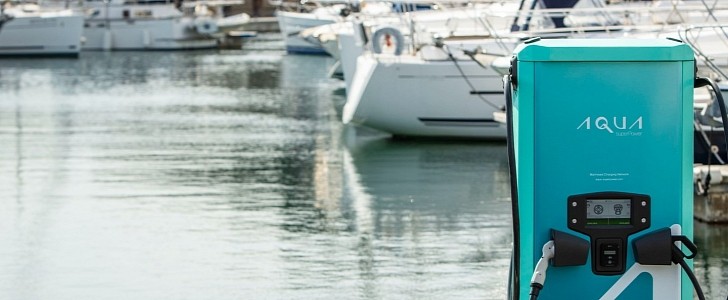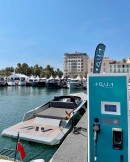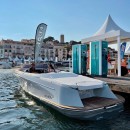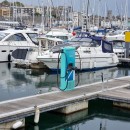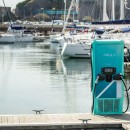Just as the large-scale use of electric vehicles is directly linked to the development of charging station networks, the possibility of having more electric vessels of any type on the water depends, among other factors, on the ability to provide adequate infrastructure. The UK has reached a milestone for its maritime industry and for the future of green transportation on water.
Plymouth authorities unveiled the country’s first e-marine hub of charging facilities for electric vessels. One of them is a 25kW installation at the Barbican landing stage, another one is the country’s first 75kW site, located at Queen Anne’s Battery, and another one, at Mount Batten, is described as the world’s first 150kW charging facility. All of these are located along the Plymouth Sound National Marine Park, with several more to be added.
The installation of these high-power DC electric charging stations is part of a project called Marine e-Charging Living Lab (MeLL), led by the University of Plymouth together with local authorities. The University of Plymouth won the Clean Maritime Demonstration Competition launched by Innovate UK, so the MeLL project is funded by the Department for Transport.
The project’s main industry partners are Aqua Superpower, the company that developed the dedicated marine fast-charging stations, and the luxury boat builder Princess Yachts.
According to the research behind the project, this innovative hub could cut port emissions by more than 96% over the next 30 years. Sarah Fear, the leader of the MeLL project, said that reaching the industry’s net-zero target relies heavily on the electrification of vessels, which must be encouraged by implementing adequate infrastructure.
The bigger goal is to eventually have electric charging facilities along the UK’s entire southern coastline, within every ten miles (16 km). Plymouth was the trailblazer, and the ones to follow are expected to be Devon and Cornwall.
The installation of these high-power DC electric charging stations is part of a project called Marine e-Charging Living Lab (MeLL), led by the University of Plymouth together with local authorities. The University of Plymouth won the Clean Maritime Demonstration Competition launched by Innovate UK, so the MeLL project is funded by the Department for Transport.
The project’s main industry partners are Aqua Superpower, the company that developed the dedicated marine fast-charging stations, and the luxury boat builder Princess Yachts.
According to the research behind the project, this innovative hub could cut port emissions by more than 96% over the next 30 years. Sarah Fear, the leader of the MeLL project, said that reaching the industry’s net-zero target relies heavily on the electrification of vessels, which must be encouraged by implementing adequate infrastructure.
The bigger goal is to eventually have electric charging facilities along the UK’s entire southern coastline, within every ten miles (16 km). Plymouth was the trailblazer, and the ones to follow are expected to be Devon and Cornwall.
